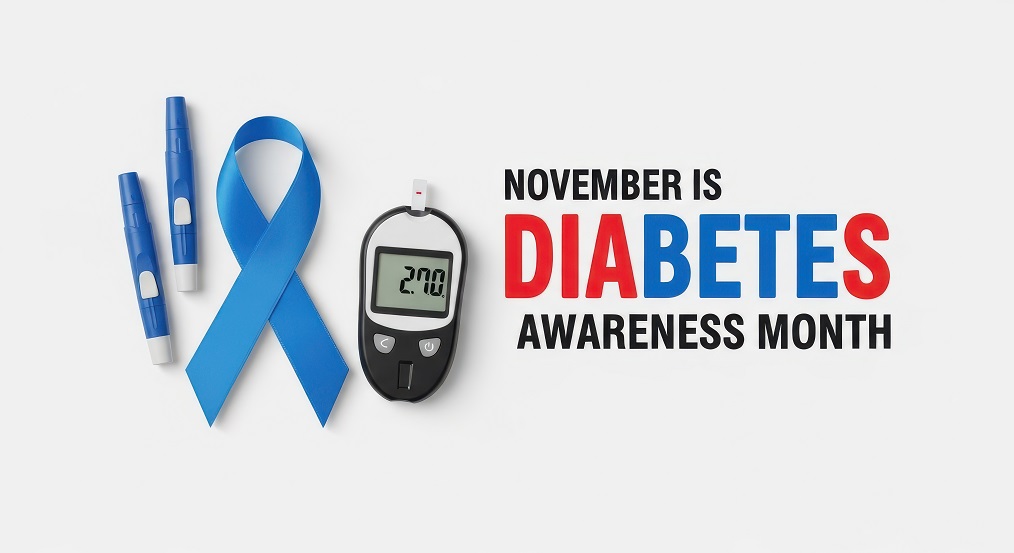Diabetes: Risks, Symptoms, and What You Need to Know

By Ben Zweirzchowski, M.D., Buffalo Medical Group Primary Care
November marks American Diabetes Awareness Month, a time to highlight a condition that affects over 38 million Americans. Diabetes is a chronic disease that interferes with how your body processes blood sugar (glucose), leading to serious health problems if not managed.
Types of Diabetes and Their Causes.
Type 1 diabetes is an autoimmune disease where the body attacks insulin-producing cells in the pancreas. It usually appears in childhood or adolescence and requires lifelong insulin treatment. Type 2 diabetes is more common and occurs when the body becomes resistant to insulin or doesn’t produce enough. Type 2 diabetes is often linked to lifestyle factors like poor diet, lack of exercise, and obesity. Unlike type 1, type 2 can sometimes be reversed with lifestyle changes.
Common Signs and Symptoms.
Common signs and symptoms of diabetes may develop suddenly with type 1 or gradually with type 2.
- Frequent urination
- Excessive thirst
- Unexplained weight loss
- Fatigue
- Blurred vision
- Slow-healing wounds
Diagnosis.
Early detection and diagnosis are key to preventing complications from diabetes, including heart disease, kidney failure, and nerve damage. Tests include:
- A1C test (average blood sugar over 2 to 3 months)
- Fasting plasma glucose
- Oral glucose tolerance test
Treatment Options.
Treatment options for type 1 and type 2 diabetes include:
- Type 1: Insulin therapy, blood sugar monitoring, and a balanced diet.
- Type 2: Lifestyle changes, oral medications, and sometimes insulin. Also, new therapies like GLP-1 receptor agonists are showing promise for managing type 2.
Questions to Ask Your Doctor.
When visiting your primary care provider, consider asking:
- What type of diabetes do I have?
- What’s my target A1C level?
- How often should I check my blood sugar?
- What lifestyle changes can help me manage it?
- Do I need medication or insulin?
- What complications should I watch for?
The Danger of Leaving Diabetes Untreated.
Uncontrolled diabetes can cause serious complications, including blindness, amputations, stroke, and even death. The good news, however, is that with proper care, many people with diabetes live long, healthy lives.
This November, take control of your health. Get tested, ask questions, and raise awareness. Diabetes doesn’t have to define your life—but ignoring it can. Buffalo Medical Group has primary care doctors accepting new patients at locations throughout Western New York. Learn more at BuffaloMedicalGroup.com or call 716-656-4471 to make an appointment.









